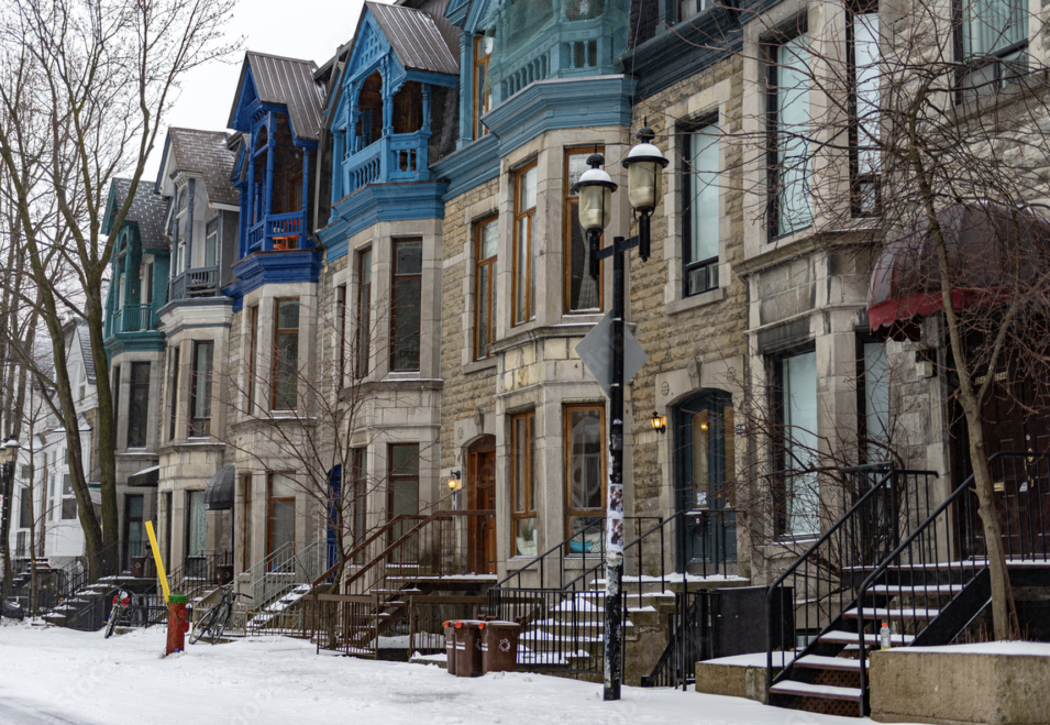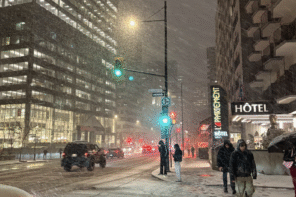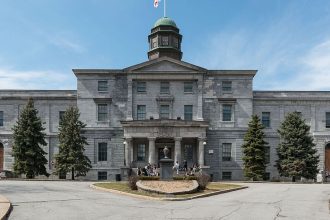With 188,000 students requiring housing in Montreal, the demand for properties is huge. For McGill students, accessible housing near the University is essential, particularly in key student areas such as Milton-Parc (commonly referred to as the ‘McGill Ghetto’), Le Plateau, Mile End and Downtown Montreal. However, this comes at a financial trade off – one of the most popular student areas, McGill Ghetto, has an average monthly rent of $1,900 for a one-bedroom apartment, compared to the citywide average of $1,700. This demand has given landlords increased power over the market, sometimes leading to predatory and deceitful behaviour.
A U2 student, who wishes to remain anonymous, told the Bull & Bear about his experience with his Montreal landlord. He explained that he is being forced to renew his lease by the large rental company Yuliv, which owns over 500 rental units in Montreal. The company is forcing his lease renewal because of a three-day late response to an email of renewal. Yuliv appealed to a technical loophole known as tacit consent, which the Tribunal administratif du logement defines as “[an] agreement or acceptance that is implied through actions rather than explicitly stated.” The company insisted that he take on next year’s lease, a $51,600 responsibility for 12 months, which is a staggering $1,200 increase to the prior year. He expressed concern, stating, “This is an issue as I was not planning to rent at this address again next year.”
In addition to using technical loopholes to compel lease renewals, Montreal landlords have been known to take advantage of university students. The same anonymous U2 student cited significant disruptions caused by construction near the apartment on St Laurent Boulevard. According to him, the noise levels were sometimes comparable to the sound of a chainsaw operating two meters away. This environmental disturbance was a key factor in his decision not to renew the lease. He further added how “there has been a lack of compensation,” alongside bullying calls and emails which one of his flatmates mentions “could ebb on the side of coercion.
Max Haine, a U3 student at Concordia, has experienced similar issues with his landlord at his rental property in the Plateau, adding that “[his] landlords often [overcomplicate] emails with confusing legal jargon to discourage students from challenging changes to their lease.” This could conflict with the Civil Code of Quebec, which states that “Every person is bound to exercise his civil rights in accordance with the requirements of good faith” in Article 6.
Elsewhere, Emilio Leto, a U2 at McGill, has had problems with their “unresponsive landlord,” who he has “never seen in person.” Leto adds that there is “no way of getting through to him,” which is an issue due to the old amenities of the property in Downtown Montreal. He reported facing a series of unresolved issues, including a washing machine that flooded and remained unfixed for five months, despite having issued a maintenance request, broken blinds, and an unusually high electricity bill of $150.92 per month, which persists year-round. These cumulative problems added to the frustration of living at the property, influencing his decision not to renew the lease. Despite Emilio finding his landlord’s absence difficult, he has mentioned how it has taught him a “valuable lesson” on renting in Montreal, including “talk[ing] to current tenants and asking them questions” about the property prior to renting.
According to McGill U2 student Jacob Livini, understanding tenant rights before signing a lease is critical. Jacob recounted a dispute with his landlord after a contractor hired to repair a chipped glass pane used abrasive chemicals, causing the window to shatter. The rental company then demanded that Jacob cover the full $5,000 replacement cost. To resolve this issue, Jacob had to involve legal counsel.
Knowing what type of lease one is signing is essential to avoiding predatory landlords according to the Tribunal administratif du logement, Quebec’s main housing authority, which is responsible for settling disputes between landlords and tenants. Montreal has two primary types of leases: fixed-term leases which are signed for a specified period (often 12 months) and indeterminate leases which continue indefinitely until terminated by the landlord or tenant. For a lease of 12 months or more, the law requires that notice of non-renewal or changes be provided at least three months before the lease’s expiration date. Failure to provide such notice results in the lease being automatically renewed under the same conditions.
Landlords and rental companies in Montreal have mixed attitudes toward renting to students. The property management company Agrosoy Realty commented in an interview with The Bull & Bear that regarding the 300 students they rent to, it is “generally a positive experience”; however, they “do not leave it as clean as a professional tenant would.” Meanwhile, another landlord, who wishes to remain anonymous, stated that “students are often responsible for excessive sound, late rent payments, and poor property upkeep,” adding that they have since aimed to stop renting to students and instead target “professional tenants.”
The Greater Montreal rental market has recently faced significant changes due to skyrocketing rent prices, increasing by 27% from 2020 to 2024, despite a greater housing supply than demand according to CBC. In 2023, Canada Mortgage and Housing Corporation (CMHC) measured a rental vacancy of 2.3% in 2023, suggesting that supply of property is not the root cause of the rent crisis. Housing groups aiming to combat the rent spikes, such as Le Regroupement des comités logement et associations de locataires du Québec (RCLALQ), have received numerous complaints about “bad landlords,” adding that evictions have increased by 132% from July 2022 to June 2023. Increased evictions, skyrocketing rent, and increased rental vacancy have led some, including the RCLALQ, to point to landlords as the root cause of the rent crisis.
Students requiring legal counsel can rely on McGill, which offers various legal resources to students including the Legal Information Clinic at McGill (LICM), Canada’s largest student-run bilingual legal clinic. LICM offers free support to McGill and the greater Montreal community, with over 80 volunteers and 5 directors. Director of the LICM, Omar Qagish, mentioned that “housing cases make up approximately 25% of the total cases” that involve legal advice “pertaining to disputes between landlords and tenants.” Outside McGill, law firms such as NextGen CC&C Avocats Inc. offer monthly plans or unlimited expert legal advice on issues including rental boards. As the National Low Income Housing Coalition (NLIHC) asserts, “Tenants should not live in fear of their landlords; the law exists to provide a balance of power.” This balance may only be struck once students know their rental rights and aren’t afraid to stand up to predatory landlords.








